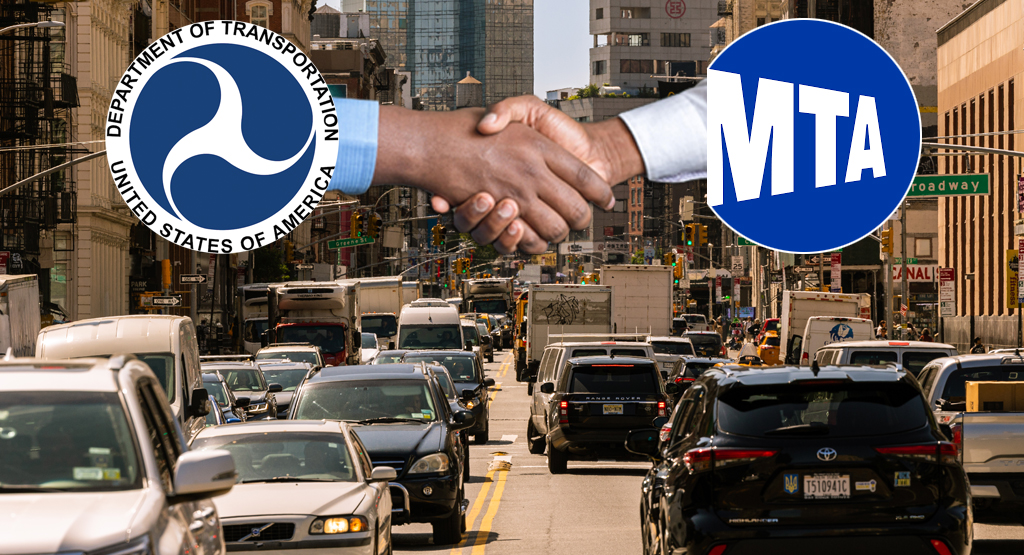Another party heard from.
Late on Friday afternoon, the Metropolitan Transportation Authority sought to join forces with the federal Department of Transportation to fight a specious lawsuit by New Jersey seeking to stall congestion pricing.
In a one-page filing in federal court, the MTA asked to be allowed to "intervene as defendants" in the case, citing federal civil procedure rules that allows parties with an interest in a case to join in if "the action may as a practical matter impair or impede the [party's] ability to protect its interest."
A spokesman for Gov. Hochul said it's definitely in New York State's interest to be in the courthouse along side the Federal Highway Administration, which has been fighting the New Jersey lawsuit alone.
“This lawsuit is seeking to block one of the nation’s most progressive climate actions, and we will not allow it to derail critical investments that the region deserves," said John Lindsay, the governor's spokesperson who is unrelated to the former New York City mayor of the same name. "The MTA has moved to intervene alongside the U.S. Department of Transportation to ensure its seat at the table and defeat this suit.”
"Gov. Hochul is committed to delivering congestion pricing to reduce traffic in Midtown and downtown Manhattan — the most congested area in the United States — improve regional air quality, and provide critical resources to the MTA, whose services millions of people rely on every day," Lindsay also said.
A top environmental lawyer said the move makes sense because it will allow the MTA to "file briefs, participate in oral arguments and appeal the judgment."
"Generally, the intervenor has to establish for the court that it has an interest in the litigation and that such interest is not adequately represented by the existing parties, said Amy Turner, the director of the Cities Climate Law Initiative at the Columbia Law School.
It doesn't look like federal legal eagles really need the MTA's help in trashing New Jersey's suit. In a response to the Garden State filing, the U.S. Department of Transportation and the Federal Highway Administration used the legal equivalent of a laugh track to describe the legitimacy of Jersey's court documents.
Twenty times in the 22-page document, federal lawyers brought up a specific allegation by New Jersey and waved it off saying, "No response is required." All of those blow-offs also included the line, "To the extent a response is deemed required, Defendants deny the allegations."
The feds also used the term "deny the allegations" another 60 times. For example, "The allegations ... provide plaintiff's legal conclusions, to which no response is required. To the extent a response is deemed required, defendants deny the allegations. Defendants deny the remaining allegations in this paragraph."
Dozens of paragraphs read the same way, matching, paragraph-by-paragraph, what the feds consider the baseless allegations in the Jersey suit.
"For the foregoing reasons, defendants request that the court dismiss the complaint in its entirety," the federal court papers state, "render judgment for defendants and against plaintiff, and grant defendants such other and further relief that the nature of the case and justice requires."
Experts on these types of suits agree more or less with the federal agencies, as Streetsblog reported. The main problem is that New Jersey has a high burden of proof: To win, Garden State gadfies will have to show that the FHWA's Finding of No Significant Impact did not allow enough input, was arbitrary in order to advance the project or failed to take an in-depth look at various environmental impacts congestion pricing could have on New Jersey communities.
"A pretty big part of [New Jersey's] argument is that the FHWA failed to conduct certain parts of the environmental review that, in New Jersey's view, it perhaps should have. I think those claims are demonstrably false," Amy Turner, the director of the Cities Climate Law Initiative at Columbia Law School's Sabin Center for Climate Change Law, told Streetsblog.






